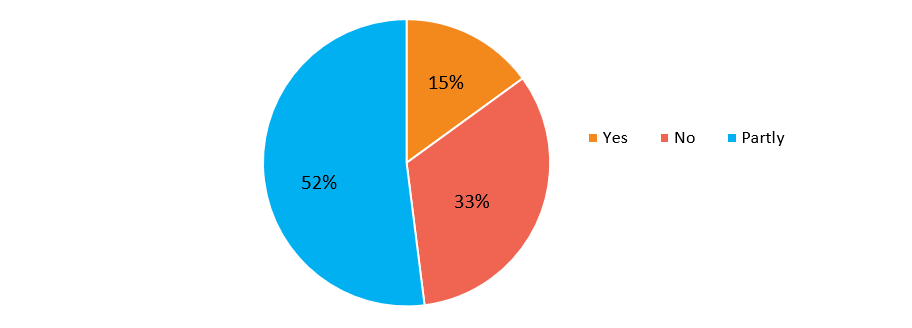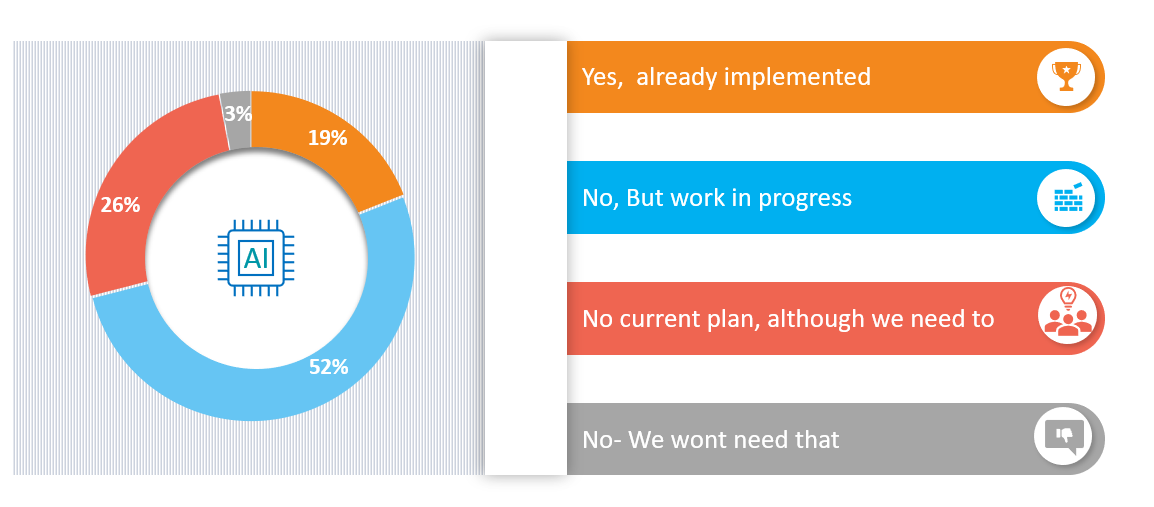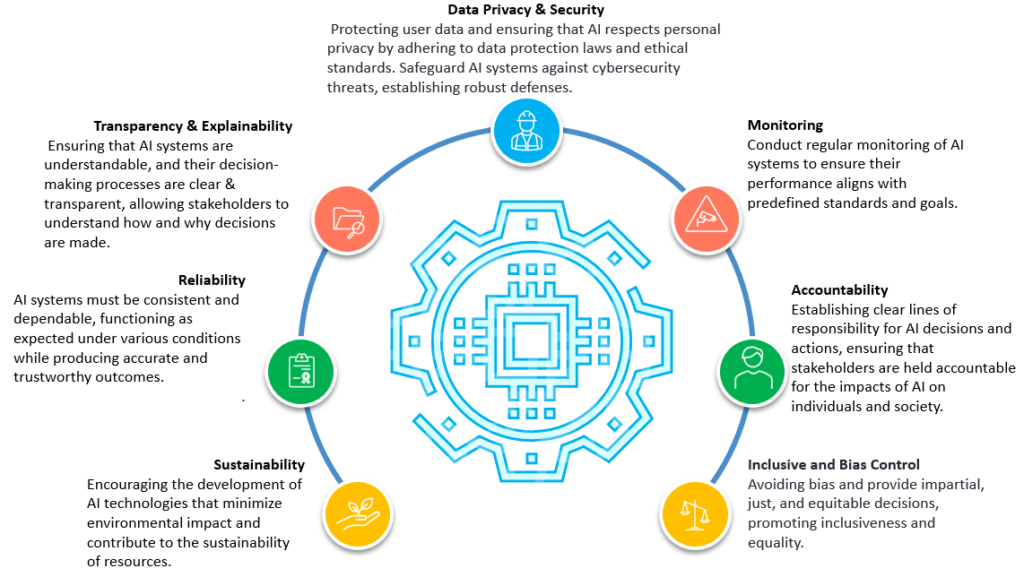Artificial Intelligence (AI) governance refers to the frameworks, policies and practices that guide the ethical and responsible development, deployment and use of AI systems. These guidelines are essential to ensure AI systems are safe, reliable and aligned with legal and ethical standards. AI is transforming industries, driving innovation, and unlocking new business opportunities. However, as AI technologies become more integrated into everyday operations, the need for robust AI governance has become increasingly critical.
Does Your Company have an AI Governance Framework in Place?

The Global Expansion of AI Regulation
AI regulation is rapidly evolving, with the European Union’s Artificial Intelligence Act (EU AI Act), passed in 2024, set to shape global AI governance. Much like GDPR’s impact on privacy laws, the EU AI Act is expected to set a global benchmark for AI regulations. With a focus on transparency, accountability, and data protection, the Act requires compliance from global companies handling EU data, with fines for violations reaching up to 35 million euros. This expansion of AI regulation is mirrored by other countries, such as China, which has introduced generative AI-specific measures and international organizations like the OECD and ISO, promoting cross-border collaboration.Core Principles of AI Governance
To ensure responsible AI development, it is essential to adhere to key governance principles, including Transparency and Explainability, Monitoring, Accountability, Inclusivity and Bias Control, Sustainability, and Reliability, as illustrated in the diagram below.AI Governance Importance and Adoption
While AI offers immense potential for businesses, it also introduces significant risks. Copyright violations, data breaches, and misinformation are just a few of the challenges AI can pose. In 2023, Samsung experienced a significant data leak involving sensitive code through an AI-powered tool, highlighting the need for stringent governance to prevent such incidents. Similarly, OpenAI faced a federal lawsuit from The New York Times, accusing it of using its articles to train AI models without permission. These examples underscore the importance of establishing robust AI governance frameworks to mitigate risks and ensure ethical AI usage. Companies that prioritize responsible AI early on will gain a competitive edge in the marketplace by fostering trust and compliance. As AI adoption continues to scale, it is clear that governance cannot be an afterthought. A recent survey by SAP LeanIX of 226 IT professionals worldwide explored how organizations are handling AI adoption and governance. The results showed that 97% recognize the need for an AI governance framework, yet only 19% have implemented one. This number rises to 32% among companies with over 10,000 employees. Additionally, 52% are in the process of developing a framework, while 26% of those who view it as essential have no plans to create or implement one. Does Your Company have an AI Governance Framework in Place?
Is your company prepared to comply with existing and emerging AI regulations in regions where you operate ?

Blackstraw’s Approach to AI Governance
Blackstraw distinguishes itself in the AI governance space by prioritizing data privacy, security and governance at the core of its solutions. Through advanced AI algorithms and next-generation machine learning, Blackstraw’s platform enables organizations to better understand, manage and secure their data while ensuring regulatory compliance through the following:- Data Understanding and Governance: Blackstraw helps organizations discover, manage and govern vast amounts of data by automatically scanning, classifying and labeling it, ensuring better data governance and AI readiness.
- Data Security: Blackstraw protects sensitive data through its data loss prevention policies, mitigating risks of vulnerabilities and data leaks across applications and devices.
- Risk Management: Leveraging machine learning, Blackstraw identifies potential data risks and regulatory violations, enabling organizations to securely deploy AI solutions.
Conclusion
As AI becomes more ubiquitous, the need for robust governance frameworks is clear. Strong AI governance ensures that AI technologies are deployed responsibly, ethically, and securely. Blackstraw is leading the way in making AI governance a priority, ensuring that businesses can safely harness the transformative power of AI. By establishing robust frameworks for ethical AI use, we empower organizations to innovate with confidence while mitigating risks and maintaining compliance.Ready to explore the possibilities of AI
for your business?
Talk to Us
for your business?

